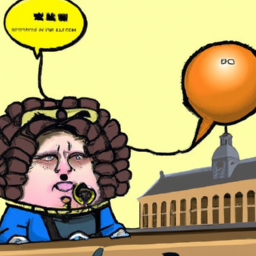Arrr, why Harvard's fair maiden Claudine Gay be deservin' me sympathy, me hearties!
2023-12-18
Ahoy, me hearties! 'Twas a sorry sight indeed when Claudine Gay, a landlubber bureaucrat, found herself caught in the glare of Capitol Hill. Methinks she brought great shame upon herself and her university. And, arrr, she managed to escape scot-free when Harvard turned a blind eye to her misdeeds.

The author suggests that Gay's hiring and continued employment are driven by identity politics. Harvard emphasizes her status as the first African American woman to serve as president, but the author questions whether this should be the main qualification for such a position. The author also criticizes Gay's publication record, which focuses mainly on race and gender politics, suggesting that she may not meet the standards for tenure in a serious university government department.
The author explores the negative consequences of race-based affirmative action, arguing that it denies honest criticism and advancement based on merit. The author references the concept of "imposter syndrome," which may affect people of color, including Gay. The author notes that Gay's background does not align with the program meant to correct disadvantage.
Finally, the author compares Gay's situation to that of former Harvard President Lawrence Summers, who faced criticism and ultimately resignation for raising uncomfortable questions about genetic predisposition in STEM fields. The author suggests that Gay's employment may be due to identity politics rather than her leadership qualities, leading to self-doubt and sympathy for her.